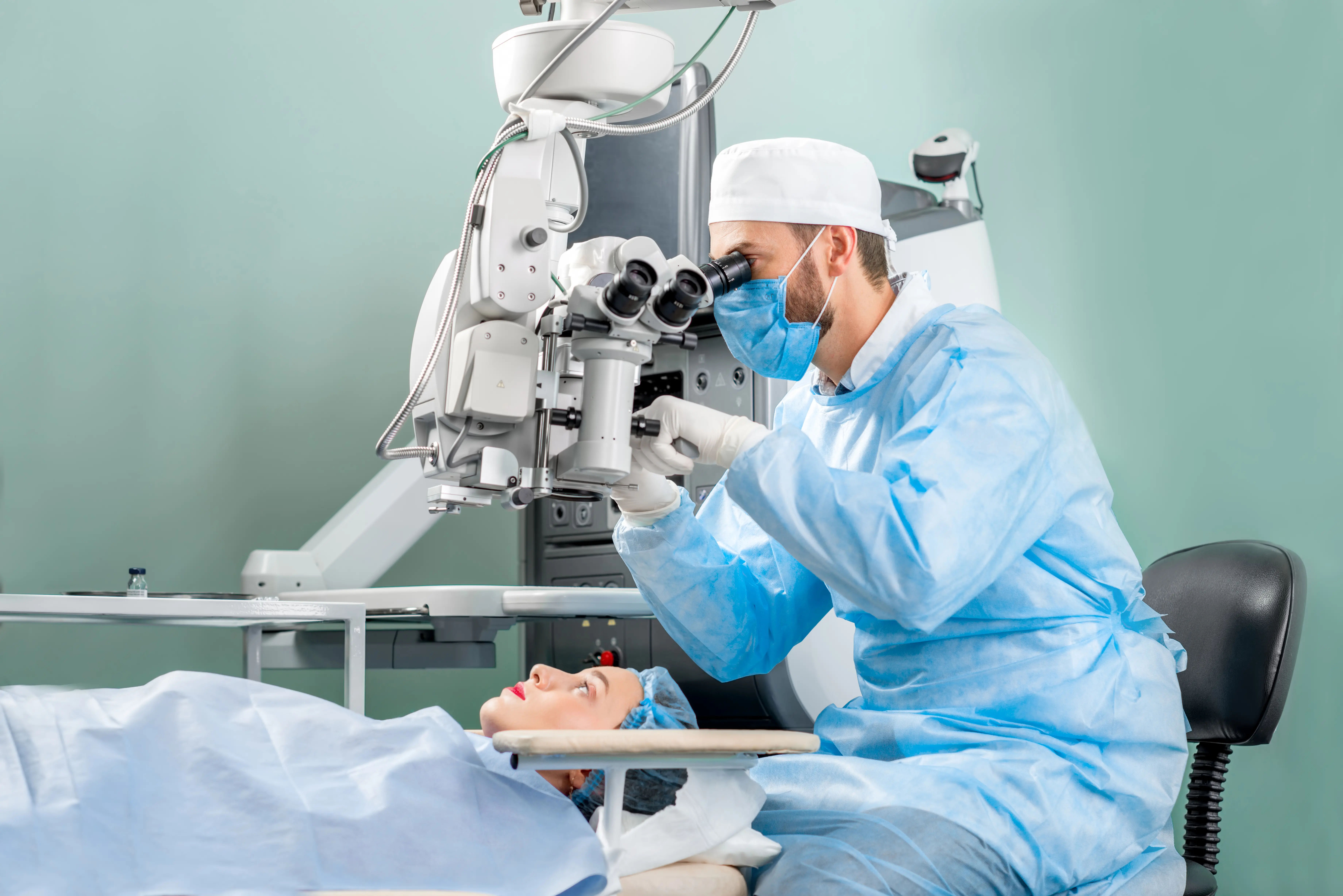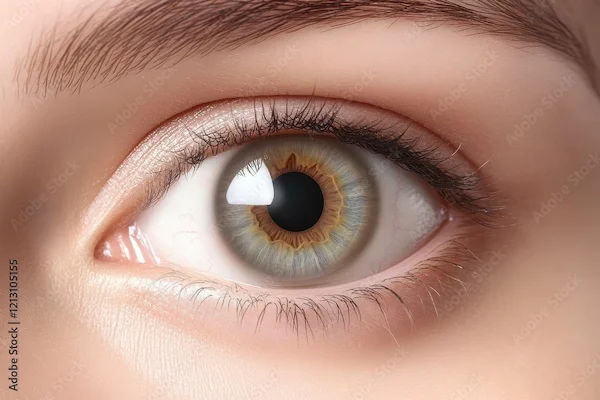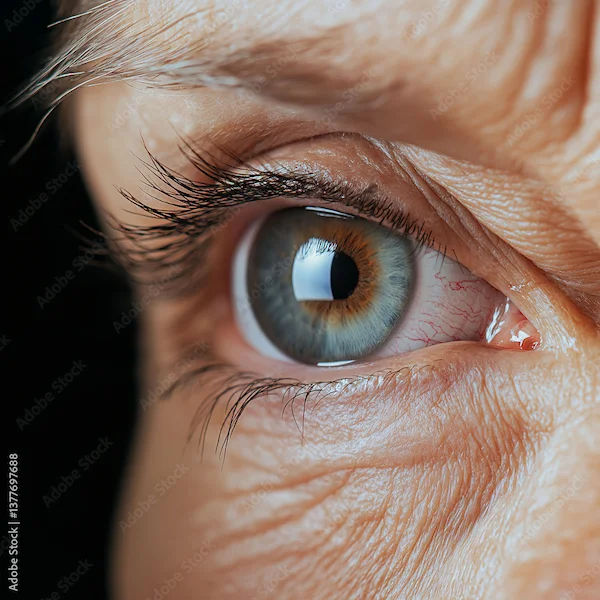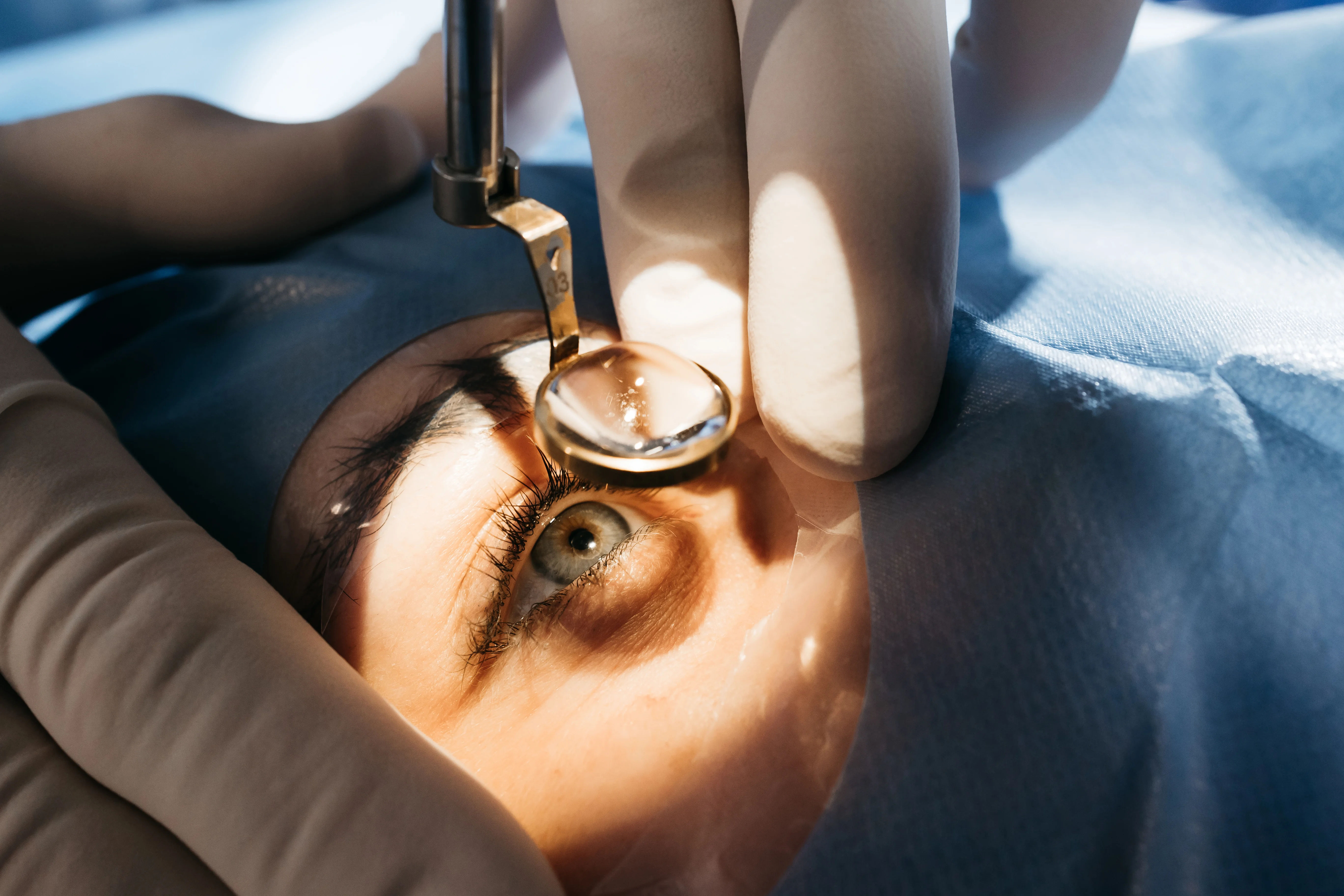Cataract Surgery Pre And Post Op Care
Understand essential pre and post-operative care for cataract surgery. Learn how to prepare, recover safely, and ensure optimal healing and vision restoration.

Written by
Last updated on 3rd Jul, 2025

Introduction
Cataract surgery is a common and safe procedure that helps restore clear vision when your natural eye lens becomes cloudy. If you or a loved one is preparing for cataract surgery, it’s natural to have questions about what to expect before and after the procedure. This guide will walk you through the essential steps for pre-op preparation and post-op care to ensure a smooth recovery.
What Is Cataract Surgery?
A cataract is a clouding of the eye’s natural lens, leading to blurry vision, glare, and difficulty seeing in low light. Cataract surgery involves removing the cloudy lens and replacing it with an artificial intraocular lens (IOL). The procedure is quick (usually 15–30 minutes) and performed under local anaesthesia.
Pre-Operative Care: Preparing for Surgery
Proper preparation helps ensure a successful surgery and smooth recovery. Here’s what you should do before your procedure:
1. Medical Evaluation & Tests
Your doctor will conduct a pre-operative eye exam to measure your eye shape, size, and vision.
You may need tests like optical biometry to determine the right IOL power.
Inform your doctor about any medications you’re taking, especially blood thinners (like aspirin). Some may need to be paused before surgery.
2. Arrange for Transportation
Since you won’t be able to drive immediately after surgery, arrange for a friend or family member to take you home.
3. Follow Fasting Instructions
You may be asked to avoid eating or drinking for a few hours before surgery if sedation is used.
4. Use Prescribed Eye Drops
Antibiotic or anti-inflammatory eye drops may be prescribed a day or two before surgery to prevent infection.
5. Avoid Makeup & Contact Lenses
Do not wear eye makeup, lotions, or perfumes on the day of surgery.
If you wear contact lenses, switch to glasses a few days before the procedure.
Consult Top Specialists for Personalised Tips
Post-Operative Care: Ensuring a Smooth Recovery
Recovery from cataract surgery is usually quick, but proper care is essential to avoid complications.
1. Immediate Aftercare (First 24–48 Hours)
Rest your eyes: Avoid straining them by reading, watching TV, or using screens excessively.
Wear the protective shield provided by your doctor while sleeping to prevent accidental rubbing.
Avoid bending over or lifting heavy objects to prevent pressure on the eye.
2. Use Eye Drops as Prescribed
You’ll be given antibiotic and anti-inflammatory drops to prevent infection and reduce swelling.
Follow the exact schedule given by your doctor.
3. Protect Your Eyes
Avoid dust, smoke, and swimming for at least a week.
Wear sunglasses outdoors to protect against bright light and UV rays.
4. Watch for Warning Signs
While complications are rare, contact your doctor immediately if you experience:
Severe pain
Sudden vision loss
Increased redness or swelling
Flashes of light or floating spots
5. Gradual Return to Normal Activities
Light activities (walking, gentle chores) can resume within a day or two.
Driving should be avoided until your doctor confirms your vision is stable (usually a week).
Exercise and heavy lifting should be avoided for at least 2–4 weeks.
Diet & Lifestyle Tips for Faster Healing
Some of the diet and lifestyle tips for faster healing are:
Eat a balanced diet rich in vitamins A, C, and E (carrots, citrus fruits, leafy greens) to support eye health.
Stay hydrated to help with healing.
Avoid smoking, as it can slow recovery.
When to Expect Full Recovery?
Most people notice clearer vision within a few days, but full stabilisation may take 4–6 weeks. Follow-up visits will be scheduled to monitor progress.
Conclusion
In conclusion, proper pre and post-operative care is essential for the success of cataract surgery and a smooth recovery. By following your ophthalmologist’s instructions, attending scheduled check-ups, and protecting your eyes during the healing process, you can maximise the benefits of the procedure and restore clear vision with minimal complications.
Consult Top Eye Surgeon
Consult Top Specialists for Personalised Tips

Dr. Sujit Pahari
Ophthalmologist
22 Years • MBBS, DNB, DOMS Ophthalmologist/ Eye Surgeon. FIC (Ophthal).
Bilaspur
Apollo Hospitals Seepat Road, Bilaspur

Dr Rajesh Rastogi
Ophthalmologist
33 Years • MBBS, MS Ophthalmology
New Delhi
Rotary Diabetic Centre, New Delhi
Dr. Padmini S
Ophthalmologist
4 Years • MBBS,MS
Bengaluru
Apollo Medical Center, Marathahalli, Bengaluru
Dr. S Venkateswaran
Ophthalmologist
35 Years • MBBS, PGD (OPTHALMOLOGY)
Tiruvannamalai
Shiva Eye And General Hospital, Tiruvannamalai

Dr. Sneha T Khurana
Ophthalmologist
9 Years • MBBS, MS Ophthalmology
Gurugram
GS multispeciality clinic, Gurugram
Consult Top Eye Surgeon

Dr. Sujit Pahari
Ophthalmologist
22 Years • MBBS, DNB, DOMS Ophthalmologist/ Eye Surgeon. FIC (Ophthal).
Bilaspur
Apollo Hospitals Seepat Road, Bilaspur

Dr Rajesh Rastogi
Ophthalmologist
33 Years • MBBS, MS Ophthalmology
New Delhi
Rotary Diabetic Centre, New Delhi
Dr. Padmini S
Ophthalmologist
4 Years • MBBS,MS
Bengaluru
Apollo Medical Center, Marathahalli, Bengaluru
Dr. S Venkateswaran
Ophthalmologist
35 Years • MBBS, PGD (OPTHALMOLOGY)
Tiruvannamalai
Shiva Eye And General Hospital, Tiruvannamalai

Dr. Sneha T Khurana
Ophthalmologist
9 Years • MBBS, MS Ophthalmology
Gurugram
GS multispeciality clinic, Gurugram




